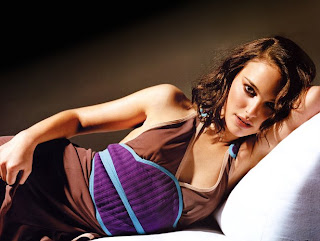I've been asked to do a comprehensive comparison of these two movies, so let's kick it off. Oh, and just so you know, there probably will be spoilers throughout for both movies. So if you haven't seen
Cloverfield yet, check it out before you read this. If you haven't seen
Quarantine, it's not that big of a deal.

First off, let me point you to
my review of Cloverfield so you can get a sense of how I liked that movie overall.
Quarantine is a horror film about a news crew that is shadowing a group of firemen; when the firemen get the call of a woman acting strangely in a building, they go in only to discover that she has some sort of disease. Bad news for the people inside, as more people get bitten and the police and the
CDC lock down the building, preventing those who aren't yet infected from escaping.
Quarantine is a completely different type of film than
Cloverfield, separated not only by genre but by tone as well. In the sub-genre of foreign language horror remakes
which Quarantine falls, it is more effective than its predecessors (
The Ring, The Grudge, etc) because it utilizes the same technique that
Cloverfield used to draw us into its characters - the whole movie is shot as if one guy is holding the camera the whole time and the only cuts are made when he pushes the record button. This psychologically allows us to associate with the characters on a more emotional level than we would other characters in a normal film; the YouTube-esque way we view their every action makes them seem more human. [The fact that we as an audience have to see their every move to identify better with them is a testament to the fact that we're becoming a little too reliant on technology.] There is also no music soundtrack in either film - natural sounds are the only thing you hear.
 Cloverfield
Cloverfield succeeds by showing glimpes of the monster and allowing the audience to join the main group of characters as they search through the city for a fallen comrade, trying to survive and figure out what's going on at the same time.
Quarantine doesn't feel the need to show us just glimpses of their diseased people - in fact, the movie thrives on short bursts of seeing them up close and personal. There is even a scene in which one of the infected people is bludgeoned to death with the camera lens. While this doesn't really make sense technologically [it would most likely crack], the scene has a nice impact theatrically because it's a metaphor for the reliance on technology I spoke about before.
Cloverfield uses the "first person shaky cam" effect to build character relationships and
Quarantine uses it to imply that we're killing ourselves by becoming a YouTube based society.
The films differ in their depiction of government as well. In
Cloverfield (a giant metaphor for September 11th) the government tries its best to sweep people along, keeping them in the masses as they try to reach safety. It's only when our group of heroes break free from these masses that the true impact of the disaster hits them on a personal level. This isn't necessarily saying anything bad about the government, instead suggesting they were just trying to keep everyone from freaking out and do what they could to save as many people as possible in the most efficient manner they could. It actually portrays them as personal figures, since the main characters converse with some officers who ultimately slip them the hint of when the last helicopter is taking off from the city.
Quarantine, on the other hand, symbolizes the government as a task force that refuses to listen to reason. Even though they can clearly see that not everyone in the building is infected, they block it off anyway and even shoot someone who tries to escape. There is no personal help offered here; they are faceless men in masks with guns who won't take any action to help a fellow human in a time of need. (I see this as an allegory for the government's reponse to Hurricane Katrina.)
The two films definitely had some similarities: both stories are framed the same way (the first part of the movie allows us to get to know the main characters and then something wild happens and we follow their journey to survive), both made use of the night vision on the camera to scary results, both featured relatively unknown actors and actresses, and they both ended the only way that movies like these SHOULD end - everyone dies.

Before I close this out, let me take the time to praise Jennifer Carpenter's acting in
Quarantine. The actress (best known for
The Exorcism of Emily Rose and as Dexter's sister Debbie on Showtime's "Dexter") was incredible - it's been said that starring in horror movies is the most difficult thing you can do as an actor/actress because it's so hard to conjure up the emotions necessary to make audiences believe you're truly frightened. And if you think about how movies are shot, she had to keep her performance steady throughout the whole movie and not get her different "scared levels" confused with other scenes. She was really fantastic to watch. The rest of her cast members left a little to be desired, and the whole cast of
Cloverfield was really solid for the whole running time, but Jen Carpenter had
Quarantine on lock by herself and that was enough for me.
Needless to say, I think
Cloverfield has a lot more to say than
Quarantine, but the latter definitely scared the crap out of me a few times - and that's why you go see movies like that in the first place. Until next time...











